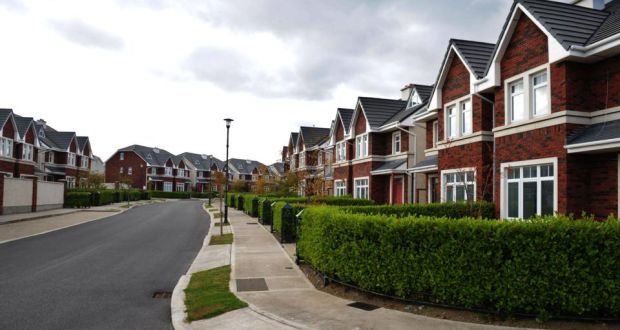
Are you thinking about buying a house or apartment in near future? Are you wondering what is involved in the process?
That is precisely what I am going to look at in this piece, and I am going to explain it in plain English.
Ready?
The first step is to find the right property for you and your particular circumstances. I have looked before at some of the factors you may consider as being the most important for you. (You can read 7 tips to simplify your house purchase here).
Once you have found the property you want and fits in your budget you will need to let the auctioneer and the lender know who your solicitor is. This will allow the auctioneer send out the sales advice note to both solicitors which will set out the basic terms of the transaction. These basic terms will include the price, the vendor and purchaser, any contents, expected closing date, and the solicitors acting for the vendor and purchaser. (When you are negotiating these negotiation tips have served me well over the years).
You will be expected to pay a booking deposit to the auctioneer which will secure the property. This deposit is refundable and is not to be confused with the contract deposit. (You can read about the difference between booking deposits and contract deposits here).
Before paying your booking deposit you should also consider the overall financing of the transaction and ensure you consider certain outlays such as stamp duty and property registration authority fees. (Read about all the costs and outlays involved in your purchase here).
Once the sales advice note is issued by the auctioneer the vendor’s solicitor will draw up a contract and prepare the copy title documents which will be sent to your solicitor for his review and consideration.
Your solicitor will then raise pre-contract enquiries about any issues which arise such as planning permission, building regulations, local property tax, sewerage, water supply, road abutting the property being in charge, and other issues.
It is only when your solicitor has received satisfactory replies to these enquiries that you will be asked to sign the contract and pay the balance of the deposit, assuming you have finance in place and not just approval in principle.
This balance of the deposit will be 10% of the purchase price less any booking deposit you have paid.
For example, let’s say you are buying a house for €250,000. 10% of the purchase price is €25,000 so this is the contract deposit. You subtract whatever booking deposit you paid to the auctioneer (usually €5/6,000) and this is the sum due on signing the contract.
Meanwhile, prior to this point, you should have ensured that the loan offer is issued by your lender and a loan pack goes to your solicitor.
You would also be well advised to have a structural survey of the property carried out because there is no use finding problems with the property after you have signed the contract. If it is a second hand house you buy it in the condition you find it- ‘caveat emptor’ (let the buyer beware). So it is vital to ascertain what condition the house is actually in. (Here’s why a structural survey is essential before you sign the contract).
Once you sign the contracts in duplicate and your solicitor returns them to the vendor’s solicitor a binding contract will come into existence when the vendor signs the contracts and returns one part to your solicitor.
At that point you move towards completion of the transaction. This will mainly involve you checking that the lender has everything they need to allow them to release the loan cheque to your solicitor for completion of the sale. Things that hold up cheque release include failure to ensure that life assurance is in place and the benefit is assigned to the lender, failure to put home insurance in place, failure to submit a completed direct debit mandate.
As closing date approaches, your solicitor will draw down the loan from the lender, ask you for your financial contribution which will include the balance of the purchase price and outlays such as stamp duty, property registration authority fees, and other outlays. The solicitor will probably leave loan drawdown as late as possible because you are paying interest from the date of drawdown and he will be anxious to ensure you do not pay unnecessary interest on your loan.
On closing day you get the keys of your new house and your solicitor transfers the purchase price to the vendor’s solicitor and authorises release of those funds, provided you are authorised to pick up the keys from the estate agent.(Read about what happens on closing day here).
After the sale completes your solicitor will submit the Deed of Transfer, the Mortgage Deed and some other forms to the Property Registration Authority to have you registered as the new owner of the folio and to register the bank’s security.
Once that is completed your solicitor will send in the title documents together with his Certificate of Title to the lender and you start paying off the mortgage and enjoying your new property. Obviously if there is no lender involved and you are a cash buyer you will may get the title documents from your solicitor or leave them with her for safekeeping.
By the way, if you are buying in Ireland from abroad you will need to get a PPS number in order to pay your stamp duty and account for any letting income. (You can read about buying property in Ireland from abroad here).